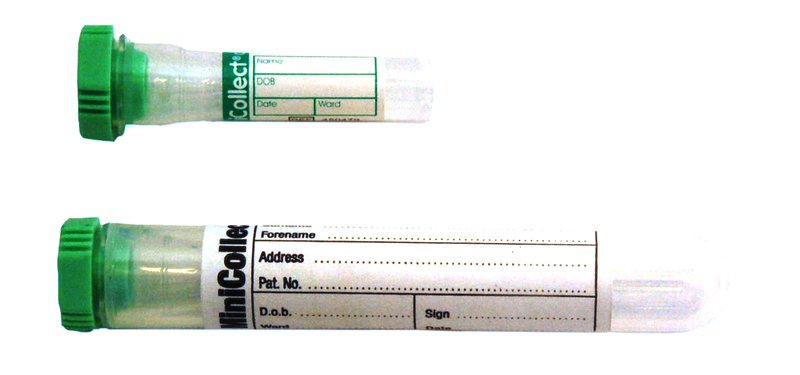Protein (Total)
Chemical Pathology
Notes
Total protein forms part of both the liver function and bone profiles.
Sample requirements
For adults, blood taken into a 5mL gold top gel tube (or rust top for the Acute Unit)

For children, blood taken into a 3.5mL rust top gel tube

For neonates, blood taken into a 0.8mL minicollect lithium heparin tube. Please list the tests of particular interest so that some priority can be given to analysis if plasma volumes are small.

Storage/Transport
Send at ambient temperature to the laboratory. If unavoidable, samples can be stored refrigerated overnight
Required information
Relevant clinical details.
Turnaround times
The assays are run throughout the day and night. The in-lab turnaround time is normally less than 24 hours. The test can be ordered as an urgent request.
Reference ranges
| Age | Reference range g/L |
|---|---|
| < 7 days | 44 - 76 |
| 7 days - 1 year | 51 - 73 |
| 1- 2 years | 56 - 75 |
| > 2 years | 60 - 80 |
Further Information
- Increases in serum or plasma proteins may be caused by prolonged application of a tourniquet.
- Very high protein levels (>95 g/L) may result in pseudohyponatraemia when sodium is assayed by the standard laboratory methods.
- Unexplained high proteins should be further investigated by protein electrophoresis and immunoglobulin investigations
To learn more about total protein, visit Lab Tests Online or access the Total Protein monograph of the Association for Clinical Biochemistry and Laboratory Medicine.